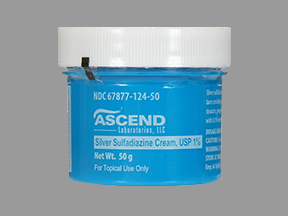
Ssd Coupons & Savings Card – Discount Prices from $6.00
Brand for: Silver sulfadiazine
My prescription
Edit
25GM of 1%, Silver Sulfadiazine (1 Bottle)
Select pharmacy

CVS
$21.00
COUPON PRICE
Walmart
$6.00
COUPON PRICE
Albertsons
$7.37
COUPON PRICE
Walgreens
$9.09
COUPON PRICESsd savings card
Show this card to your pharmacist
Walmart
$6.00
BIN
ID
PCN
GRP
019876
LH11ED91BD
CHIPPO
LHX
Powered by
Related sulfa antibiotics prescriptions
Related sulfa antibiotics prescriptions
Price history for Ssd (brand) & Silver Sulfadiazine (generic)
1 Bottle, 20GM
Average retail price for Ssd
Average retail price for Silver Sulfadiazine
Average SaveHealth price for Silver Sulfadiazine
Our price history data is based on aggregated prescription data collected from participating pharmacies in America. Our prescription data updates daily to reflect the latest price changes. If you notice a missing data point, it means there wasn't sufficient data available to generate a monetary value for that date.
Over the last 12 months, the average discount price of Ssd is $9.15 using the SaveHealth savings card. That's an average savings of 8.04% on Ssd with our discount card.
*Retail prices are based on pharmacy claims data, and may not be accurate when we don't have enough claims.
Ssd (Silver Sulfadiazine) dosage forms
Dosage Quantity Price from Per unit 20GM 1 Tube $5.30 $5.30 20GM 2 Tubes $8.10 $4.05 20GM 3 Tubes $10.90 $3.63
| Dosage | Quantity | Price from | Per unit |
|---|---|---|---|
| 20GM | 1 Tube | $5.30 | $5.30 |
| 20GM | 2 Tubes | $8.10 | $4.05 |
| 20GM | 3 Tubes | $10.90 | $3.63 |
Using the SaveHealth discount card, what is the price of Ssd without insurance?
Using the SaveHealth discount card, the price of Ssd without insurance is $6.00.
What is the price of Ssd at CVS?
The price of Ssd at CVS is $21.00.
What is the price of Ssd at Walgreens?
The price of Ssd at Walgreens is $9.09.
What is the price of Ssd at Walmart?
The price of Ssd at Walmart is $6.00.
